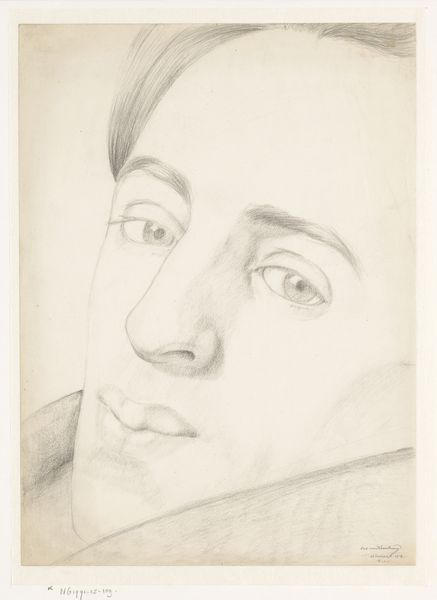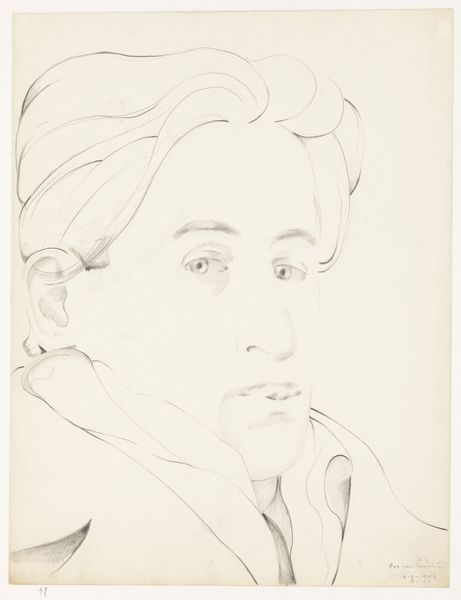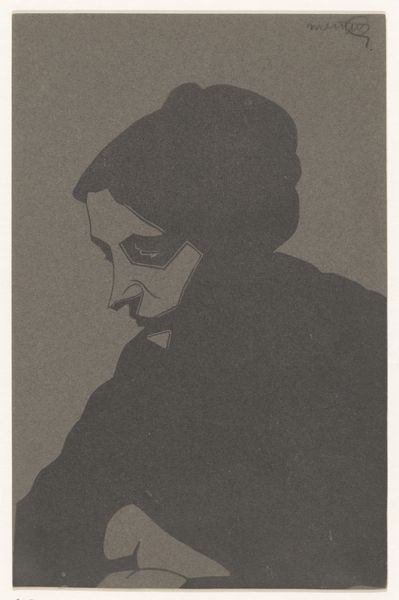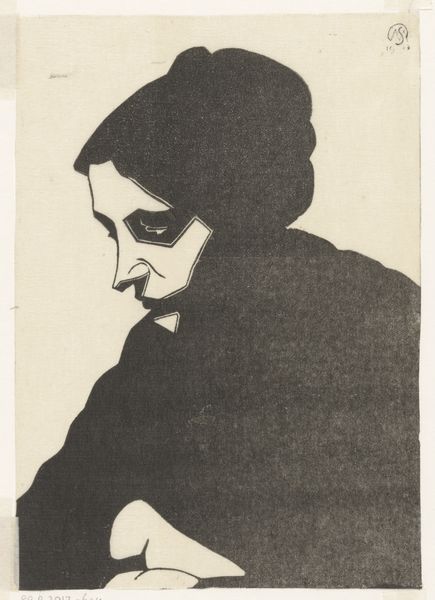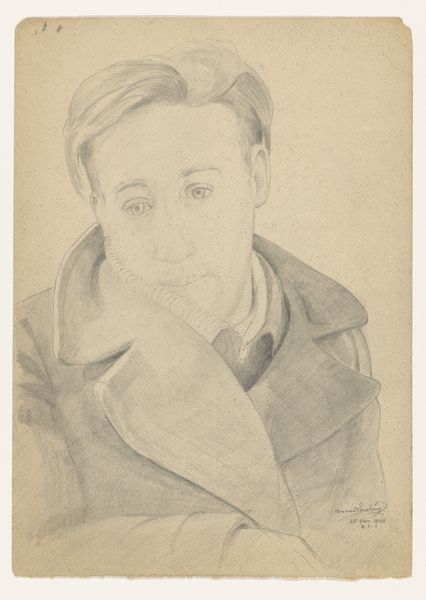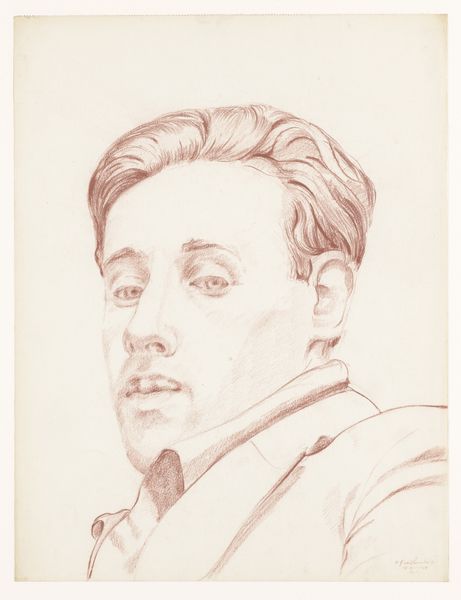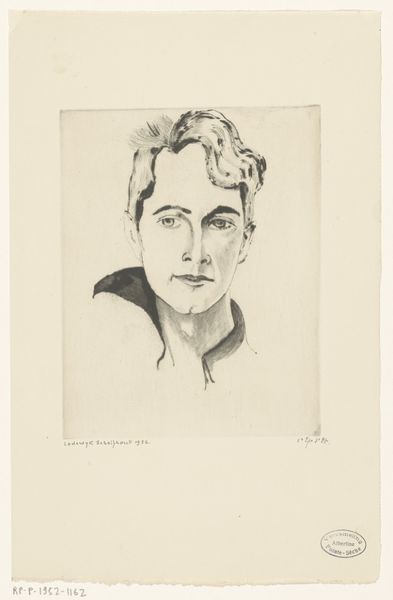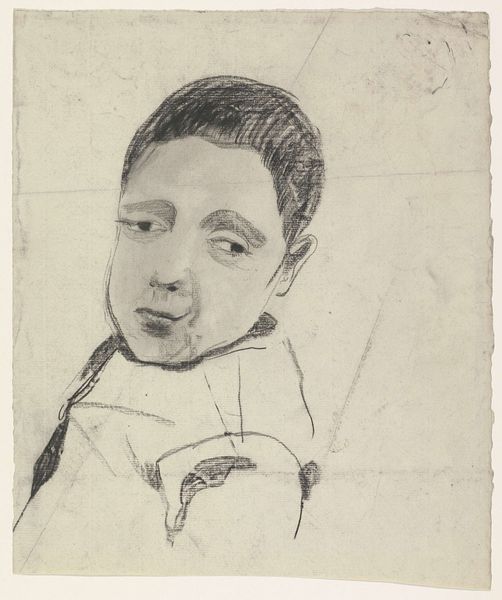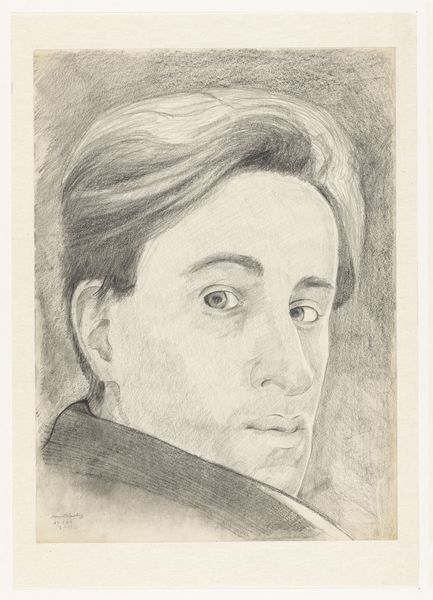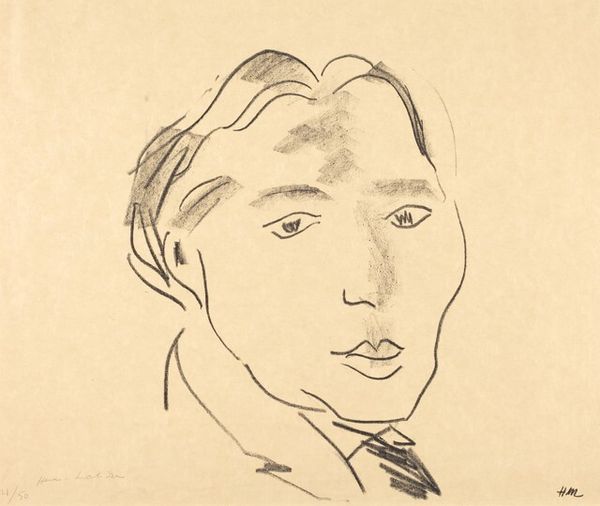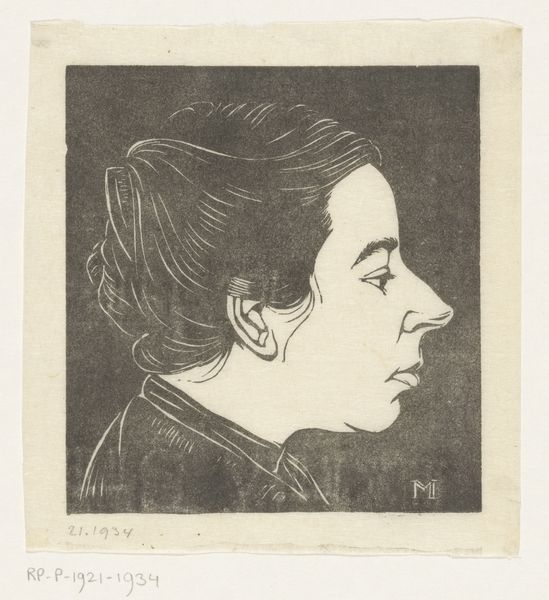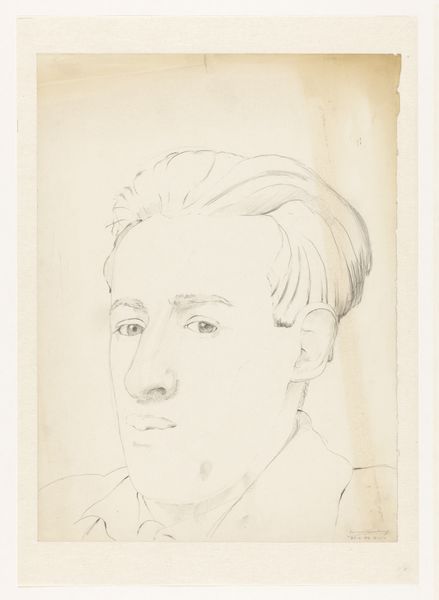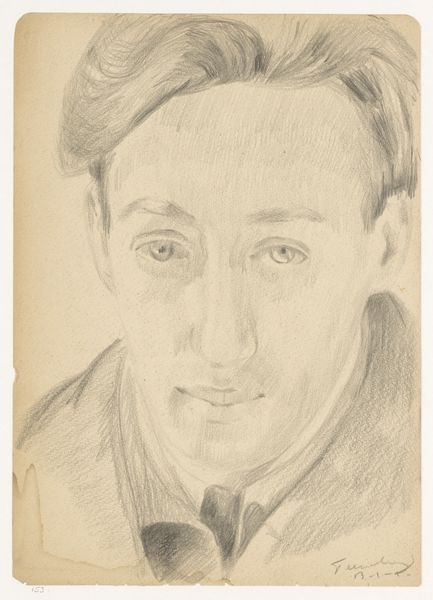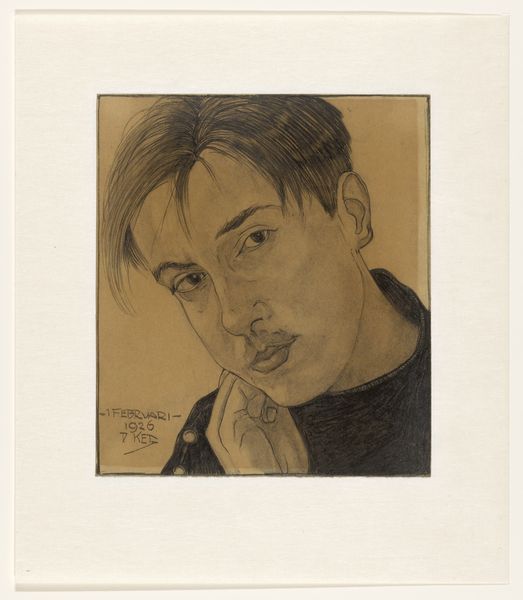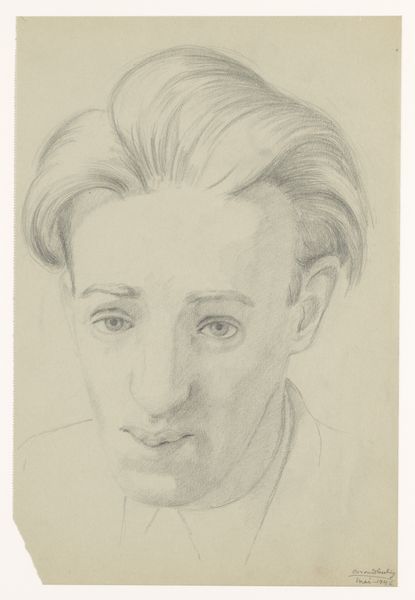
photography
#
portrait
#
low key portrait
#
portrait image
#
pictorialism
#
portrait
#
portrait subject
#
photography
#
portrait reference
#
portrait head and shoulder
#
geometric
#
single portrait
#
facial portrait
#
modernism
#
celebrity portrait
#
digital portrait
Dimensions: sheet (trimmed to image): 11.3 x 8.6 cm (4 7/16 x 3 3/8 in.) mount: 32.2 x 25.3 cm (12 11/16 x 9 15/16 in.)
Copyright: National Gallery of Art: CC0 1.0
Editor: This striking black and white photograph, simply titled "Georgia O'Keeffe," possibly taken between 1918 and 1934 by Alfred Stieglitz, has such a powerful presence. It’s intense, almost confrontational. What strikes you about this portrait? Curator: What stands out is the manipulation of O’Keeffe's image, not just visually but in terms of its public consumption. Stieglitz, as her husband and gallerist, carefully crafted her persona through these photographs. The framing, the lighting, even the positioning of her hands – all contribute to a specific narrative about her as an artist. Editor: So you're saying that the image is not necessarily revealing, but perhaps concealing some aspects of her identity? Curator: Precisely. Pictorialism, which is evident here in the soft focus and emphasis on atmospheric effect, allowed Stieglitz to imbue the image with his interpretation of O'Keeffe. We have to remember the historical context: Stieglitz championed modernism in America, and O’Keeffe became a key figure in that movement. This portrait then, is also a statement about the avant-garde. Editor: That makes sense. It's interesting to consider how this portrait, intended to promote her artistry, also may have influenced her reception in the art world. How might it affect her agency as a woman artist? Curator: That’s the crucial question. Did these images empower her, or did they ultimately contribute to a myth that, while successful in elevating her status, perhaps also confined her within a pre-defined role? The politics of imagery are rarely simple. How do you feel, considering her role as a female painter who broke gender barriers? Editor: It feels complicated. I see the power, but now I am also questioning who truly controls the narrative in these photographic series. Curator: Exactly. Examining these images reminds us that artistic reputation is often constructed through a complex interplay of personal relationships, marketing strategies, and the prevailing cultural winds of the time. Editor: I hadn't fully considered how much social context is embedded within an image. Thanks, I will keep this in mind as I learn more about art.
Comments
No comments
Be the first to comment and join the conversation on the ultimate creative platform.
